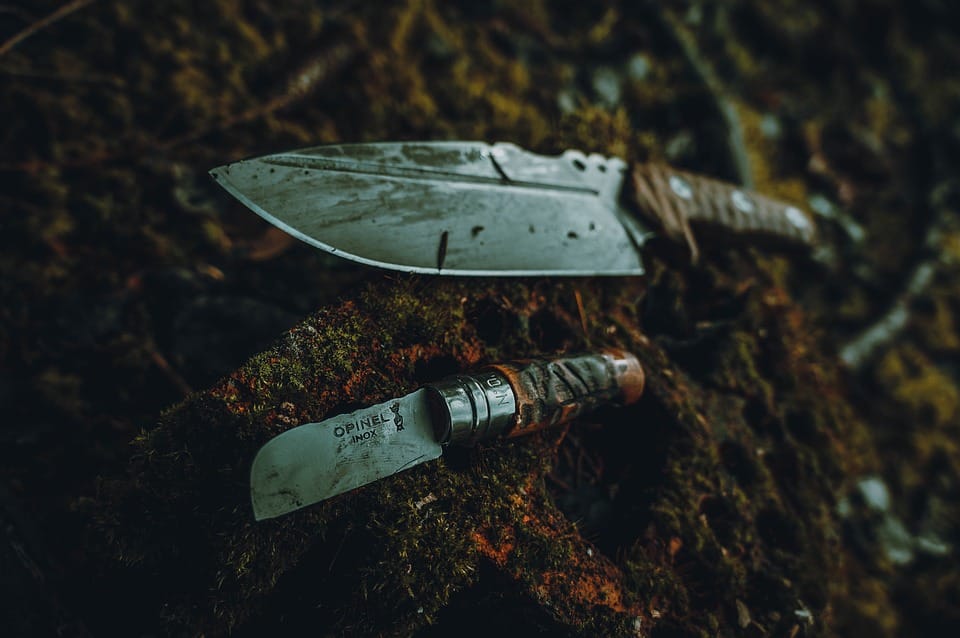New Jersey Knife Laws: A Guide to Carrying Pocket Knives in the Garden State
Understanding New Jersey’s Knife Laws
New Jersey, known as the Garden State, has a unique set of laws when it comes to carrying pocket knives. As a responsible citizen, it’s essential to understand these laws to ensure you’re carrying your knife legally and safely. In this comprehensive guide, we’ll delve into the ins and outs of New Jersey’s knife laws, helping you navigate the complexities with confidence.
What are the Legal Considerations for Pocket Knives in New Jersey?
Before we dive into the specifics, it’s crucial to understand the legal framework surrounding pocket knives in New Jersey. The state’s laws are based on the 1939 New Jersey Code, which classifies knives into three categories: ordinary, unusual, and dangerous.
Ordinary Knives
Ordinary knives are defined as those with a blade length of 2 inches or less. These knives are legal to carry and possess in New Jersey, provided they’re not concealed or used in a threatening manner.
Unusual Knives
Unusual knives are defined as those with a blade length between 2 and 5 inches. These knives are also legal to carry and possess, but they’re subject to stricter regulations. For example, unusual knives with a blade length between 2 and 3 inches must be carried in a sheath or scabbard, while those between 3 and 5 inches must be carried in a sheath or scabbard and be registered with the state.
Dangerous Knives
Dangerous knives are defined as those with a blade length of more than 5 inches or those with a blade length of less than 2 inches but are designed or intended for use as a weapon. These knives are illegal to carry and possess in New Jersey, except for specific circumstances, such as for law enforcement or military purposes.
Concealed vs. Open Carry
Another crucial aspect of New Jersey’s knife laws is the distinction between concealed and open carry. Concealed carry refers to carrying a knife in a way that’s not immediately apparent, such as in a pocket or purse. Open carry, on the other hand, refers to carrying a knife in a visible manner, such as in a belt sheath or attached to a backpack.
Legal Penalties for Violating New Jersey’s Knife Laws
If you’re caught violating New Jersey’s knife laws, you could face legal penalties, including fines and imprisonment. The severity of the penalties depends on the specific circumstances and the type of knife involved.
Frequently Asked Questions
Q: Can I carry a pocket knife in New Jersey?
A: Yes, you can carry a pocket knife in New Jersey, provided it has a blade length of 2 inches or less.
Q: Are there any specific regulations for carrying unusual knives in New Jersey?
A: Yes, unusual knives with a blade length between 2 and 5 inches must be carried in a sheath or scabbard and may require registration with the state.
Q: Are dangerous knives legal to carry in New Jersey?
A: No, dangerous knives are illegal to carry and possess in New Jersey, except for specific circumstances, such as for law enforcement or military purposes.
Q: Can I carry a knife openly in New Jersey?
A: Yes, you can carry a knife openly in New Jersey, but you must follow all applicable laws and regulations.
Q: What are the legal penalties for violating New Jersey’s knife laws?
A: The legal penalties for violating New Jersey’s knife laws depend on the specific circumstances and the type of knife involved. You could face fines and imprisonment.
Conclusion
Carrying a pocket knife in New Jersey can be a complex and nuanced topic, but understanding the laws and regulations can help you navigate the situation with confidence. Remember to always follow the laws and regulations, and to carry your knife responsibly and safely.
